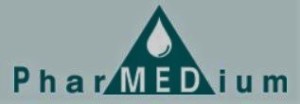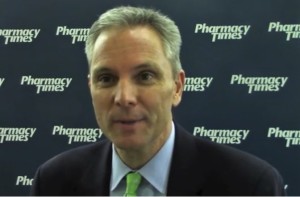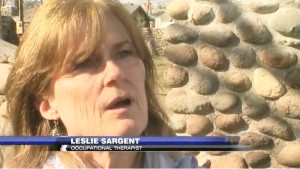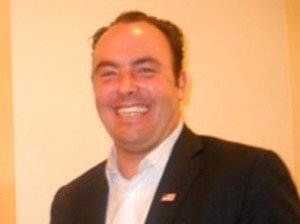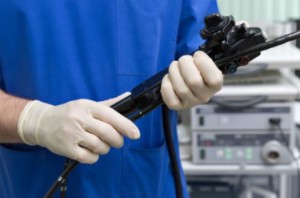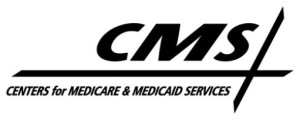- France raises concerns about heparin made by Dongying Tiandong (in-pharmatechnologist.com)
French regulators have raised concerns about heparin made by Chinese supplier Dongying Tiandong Pharmaceutical and called on the EMA to revoke its GMP certificate...a report filed on the European Medicines Agency’s EudraGMP database last week , ANSM inspectors who visited the firm’s facility in Dongying City in December observed 10 deviations from good manufacturing practices standards...The ANSM inspectors said Dongying had used seven batches of out of specification crude heparin to make active pharmaceutical ingredients between 2014 and 2015, which they said indicated a misunderstanding of the basic GMP principles...According to Dongying's website, the firm passed a US Food and Drug Administration inspection in 2013 and was been cleared to supply heparin sodium and enoxaparin sodium APIs by Mexican authorities in 2014.
- Another of AmerisourceBergen’s Pharmedium facilities cited by FDA (fiercepharmamanufacturing.com)Form FDA 483 Inspectional Observations (fda.gov)
Drug distributor AmerisourceBergen has pledged to set the bar high on quality at Pharmedium Healthcare Holdings, the compounding pharmacy company for which it laid out $2.6 billion. The challenges, however, keep mounting as FDA inspections continue to note issues at its manufacturing facilities...FDA posted another Form 483 for a Pharmedium compounding facility last week, this one at the company's headquarters in Lake Forest, IL. It followed an inspection in November that turned up half a dozen observations. In the past year, the FDA has issued Form 483 observations at Pharmedium facilities in Texas, Mississippi, New Jersey and Tennessee, as well as at its Illinois headquarters...inspectors noted...that the Chicago-area facility had released 16 lots of products that were out of spec for potency and purity. They also noted that results from stability testing were not used in determining expiration dates.
- Another Court Weighs In on Whether Off-Label Promotion is Per Se Illegal; Jury Finds Both Defendants Not Guilty on All Counts (fdalawblog.net)
On February 25...upon conclusion of the...criminal case...United States v. Vascular Solutions, Inc...Judge Lamberth charged the jury...The case involves allegations that...a medical device company and its president, engaged in an unlawful off-label marketing campaign. The government’s superseding indictment alleged that the defendants engaged in a criminal conspiracy to violate the Federal Food, Drug, and Cosmetic Act, and committed four counts of selling misbranded medical devices...After deliberating for one day, the jury came back with a verdict of "not guilty" on all counts for both the company and its CEO...FDA’s ability to restrict speech that is truthful and not misleading is limited...FDA has long stated that the dissemination of information about unapproved uses can be important for medical professionals, and so long as the information is distributed according to certain guidelines...promotional speech itself would not be evidence of misbranding so long as the speech was solely truthful and not misleading. This position is consistent with a growing trend among courts to find that truthful and not misleading promotional materials may be distributed by a company without violating the misbranding provisions of the FDC Act...given the growing willingness of companies to challenge FDA’s regulation of off-label promotion, their success in doing so, and court decisions indicating...an unapproved use does not violate the misbranding provisions...DOJ and FDA must carefully consider how to proceed in bringing charges of off-label promotion.
- How should FDA revamp its off-label marketing rules? An expert panel backs big changes (fiercepharma.com)
After a series of court decisions put its regulatory approach in question, the FDA promised new guidance on off-label drug promotions. That was more than a year ago. Now, a group of health policy wonks and legal experts has come out with some suggestions...The recommendations from the Duke-Margolis Center for Health Policy include one big change that might simplify the free-speech debate over off-label marketing. The agency could revamp its approach to official labeling to include clinical data on off-label uses, graded for evidence quality, and even post-marketing data generated through the agency's own Sentinel surveillance system…Changing official FDA labeling...the Duke-Margolis Center suggests using pilot programs...One might use the Sentinel system. Another might allow provisional off-label use claims based on evidence that's not enough for a new indication, contingent on Sentinel keeping watch on the new use. Overall, the idea would be to develop a tiered labeling system, with the strongest supporting data on the highest tier, and lesser quality evidence farther down...more radical suggestion? Setting up a third-party data-review organization with the FDA's involvement...[That] would assess new off-label promotional material and give it a quality-control score based on the quality of evidence backing it up…The FDA clearly wants to roll out its own guidance, rather than letting the courts decide. In December, the agency settled an off-label marketing dust-up with Pacira over its Exparel marketing, and it's on the verge of a deal in Amarin's off-label lawsuit involving its cardiovascular med Vascepa.
- What is the Status of Birth Control Prescribing Among California Pharmacists? (pharmacytimes.com)
Jon Roth, CEO of the California Pharmacists Association, discusses the status of birth control prescribing among pharmacists in California.
- New FDA guidelines aim to prevent Zika transmission via tissue, cell donation (reuters.com)FDA issues recommendations to reduce the risk of Zika virus transmission by human cell and tissue products (fda.gov)
Food and Drug Administration on Tuesday issued new recommendations aimed at reducing the risk of Zika virus transmission through donated human tissues and cells used in surgical or reproductive procedures, such as umbilical cord blood, corneas and heart valves...The guidance is part of the agency's ongoing efforts to protect human cellular, tissue and blood products from potential contamination with Zika virus..."Though there is more to be learned about the transmission of Zika virus, given what we know about the virus at this point, which also is informed by our understanding of similar viruses, we must address the potential risk of Zika virus transmission by human cells and tissues," Peter Marks, director of the FDA’s Center for Biologics Evaluation and Research, said in a statement...Under the new recommendations, donors should be considered ineligible if they were diagnosed with Zika virus infection or were in an area with active virus transmission, or had sex with a male with either of those risk factors, within the past six months...
- State tax on medical devices under fire (kolotv.com)
Devices like C-PAP machines or oxygen tanks are commonplace in some households. Often, patients leave the hospital and are told they need a medical device to help them throughout the home. That's where occupational therapist Leslie Sargent comes into play. She used to visit homes to make sure the patient was safe..."When I was working in home health, a lot of them couldn't afford the equipment at that time," says Sargent...Such practices...are only going to become more common in Nevada after a medical devices tax went into effect in January 2016. Essentially a sales tax, patients are now being taxed on devices that can be used on newborns all the way to hospice patients... Doug Bennett, Chair of the Board of Bennett Medical Services...along with 35 others statewide, is circulating a petition to have voters decide on the medical devices tax in November 2016. He says they are already halfway through getting the required signatures they need to get the measure on the ballot...If it ends up on the 2016 November ballot, and passes, voters will have to approve it again in 2018.
- Bass associate accuses PTO officials of bias against their pharma patent crusade (fiercepharma.com)
Hedge funder Kyle Bass and his Coalition for Affordable Drugs has been somewhat successful at using a new type of patent challenge to push review of "questionable" drug patents. But Bass' partner in that effort now says he doesn't trust the Patent & Trademark Office to be impartial in making those decisions...Erich Spangenberg, in an article at IPWatchdog, says PTO chief Michelle Lee and her staff have favored pharma since Bass announced last year that he and his group would target pharma patents via the inter partes review process...according to the documents, Lee and other PTO officials sat down with the industry association BIO...Bass and Spangenberg themselves called and emailed repeatedly to request a similar meeting, and they're still waiting... It's an outrage that Ms. Lee is showing incredible bias by granting meetings to the people that are gouging American patients, consumers and taxpayers and denying the same access to the people who are attempting to end this abuse...Some analysts have criticized the coalition for targeting inconsequential patents that aren't likely to change the length of a company's monopoly hold on the market, while profiting from shorting the shares of the same company. In a PTO filing, the coalition has acknowledged that Bass and his group don't have altruistic motives, but maintains that his profit motives "do not change the social value of his activities."...
- Endoscope maker Olympus will pay record $623 million to settle kickback allegations (modernhealthcare.com)
The nation's largest endoscope distributor will pay $623.2 million to resolve civil and criminal allegations that it paid kickbacks to hospitals and doctors in exchange for purchasing its devices, the Justice Department announced...Olympus Corporation of the Americas has agreed to pay a record-setting $310.8 million to settle civil claims that it violated the False Claims Act because its claims were tainted by illegal kickbacks. The sum is the largest ever paid by a medical-device company over violations related to the federal anti-kickback law...Olympus will also pay a $312.4 million criminal penalty over the allegations. The company admitted to paying doctors and hospitals in the form of consulting payments, travel, meals, grants and free endoscopes in exchange for their business...the kickbacks helped the company make more than $600 million in sales and gross profits of more than $230 million...The civil settlement resolves a lawsuit originally brought by whistle-blower John Slowik, a former chief compliance officer for the company. In successful False Claims Act cases, whistle-blowers are entitled to a portion of whatever money the government is able to recover. Slowik will receive $51 million...
- CMS Seeks to Improve Access to Preferred Cost Sharing Pharmacies (specialtypharmacytimes.com)
Centers for Medicare Medicare & Medicaid Services is prioritizing an effort to make preferred cost sharing pharmacies available in geographical areas that have little access...we heard concerns that some beneficiaries did not have ready geographic access to preferred cost-sharing pharmacies...Increasingly, Part D plans are creating smaller networks of pharmacies within their larger networks and offering lower cost-sharing arrangements to beneficiaries who use these preferred cost-sharing pharmacies...Although plans are marketed with lower cost-sharing arrangements, there are some areas that do not have pharmacies accessible to beneficiaries...In order to address this issue, CMS laid out a plan to help in these areas...The plan includes measures such as:
- Working with outlier plans that addressed concerns regarding marketing and access
- Require the discloser in marketing material of plans offering less access to preferred cost-sharing pharmacies
- Publish access levels that offer a benefit structure for each plan.


